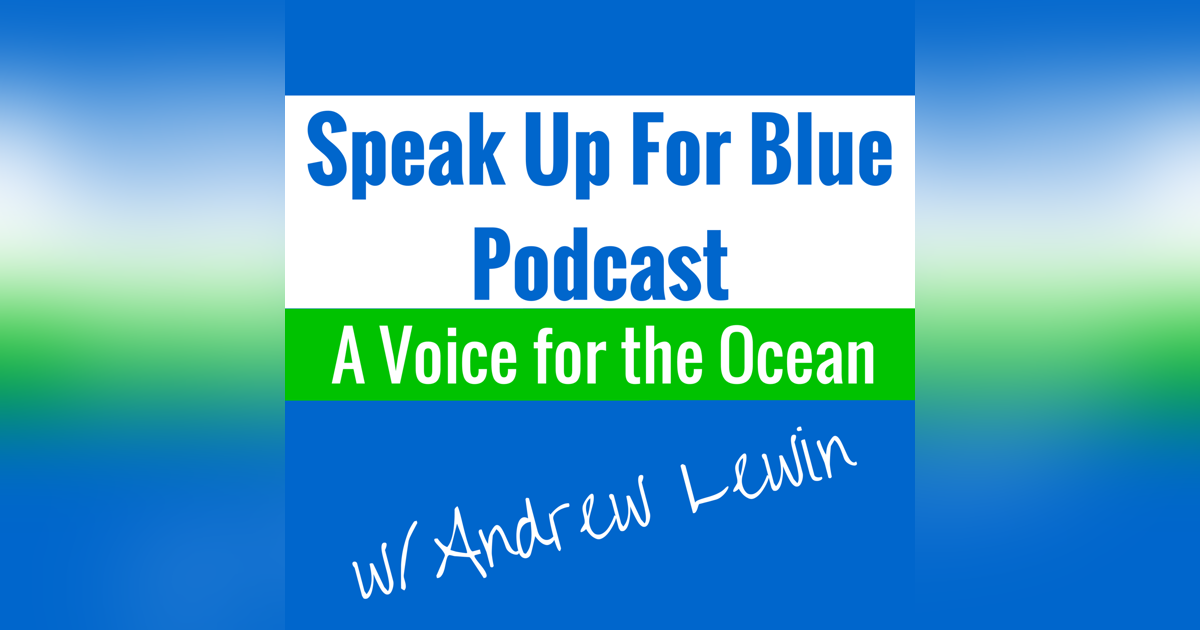SUFB 192: Trash Free Seas With Nick Mallos

Ocean Conservancy's Nick Mallos, Director of their Trash Free Seas Alliance, sits down with me to discuss the problem of plastic pollution and how we can reduce it.
Plastic pollution in the Ocean is a worldwide epidemic affecting water quality and the health of Ocean species more than we already know. Over 100,000 marine mammals (whales, dolphins), sea turtles, seabirds and fish are killed each year by marine debris including plastic pollution. Plastic pollution is an Ocean issue that is not debated as other issues are (climate change) as it has been documented by many organizations and advocates who travel out to the Ocean Gyres (5 of them) to witness, take photographs and video the evidence of plastic pollution and the ocean; however, plastic pollution is a HUGE issue in the Oceans.
Plastics and other marine debris can be found on beaches and coastlines all over the world. They wash up from the ocean after floating around for years and they wash down the watershed from land-based sources eventually landing in the Ocean. In fact, nearly 45% of land-based trash comes from 5 countries in Asia; although, this doesn’t mean that other countries such as the Canada and the US aren’t adding to the plastic pollution problem. If this is such a big problem, then why do more people not know about it? There are many organizations out there such as Plastic Pollution Coalition, 5 Gyres, Environmental Defence Fund, Tangaroa Blue and the Ocean Conservancy that are raising awareness through research and awareness campaigns; however, it still seems that many people do not know of the problem with plastic pollution.
A couple of weeks ago, a friend of mine here in Burlington, Ontario (Canada) tagged me in a Facebook post with a video about the plastic pollution and debris that travels through the storm sewers and into Lake Ontario. It was one storm sewer, but probably a common occurrence with many other sewer outfalls as well. He asked me who people could call and I mentioned that this wasn’t completely a government clean up problem (in Burlington, we have a sophisticated waste management system: compost, recycling and garbage with deleterious substances being thrown out at specific facilities). It’s not a perfect system, but it’s quite good in comparison to other cities around the world. I told my friend that the problem lies mostly with people and the way that we use and dispose of single use products. Plastic bags, plastic utensils, plastic containers, plastic water bottles are all part of the problem. These items are either dropped on the ground (people) or they are end up in the water from landfills (government).
It’s a problem that needs to be discussed within every community in every city. Government campaigns to make more people aware of the items that end up in their lake (or water body) and how they can reduce the use of those items coupled with regularly scheduled beach clean ups will help reduce the amount of plastic pollution in the lake and bring the community closer together.
I did an interview with Heidi Taylor of Tangaroa Blue, an organization that not only cleans up beaches, but works with industry to find alternative sustainable solutions to common items found in their beach clean ups along the east coast of Australia. Heidi and her organization recruits a team of citizen scientists to work with her team to clean up and enumerate the items found on a beach and use the database to make informed decisions and change policies.
There are some great organizations out there raising awareness, cleaning up beaches and working with government and industry partners to help reduce plastic pollution and other marine debris; however, more awareness is necessary. It’s a good thing the Speak Up For Blue team is all about raising awareness and has a growing podcast out to help spread the world. We found the perfect person to interview to help us in our mission.
Ocean Conservancy’s Nick Mallos, Director of their Trash Free Seas Alliance program, sat down with me at the International Marine Conservation Congress to answer a few questions about marine debris and how we can reduce/eliminate it.
Take a listen to the podcast and let us know what you think in the show notes.
Join the Arbonne Blue Team
http://www.speakupforblue.com/teamblue
Instagram: @speakupforblue
SUFB Podcast: http://www.speakupforblue.com/podcast
SUFB Website: http://www.speakupforblue.com
10 Ocean Tips to Conserve the Ocean: http://www.speakupforblue.com/wordpress/sufb_optinpdf











